Lisa Cerniglia arrived in Asheville earlier this year homeless and at her wit’s end. The California native was frustrated by her home state’s inability to provide the mental health support she desperately needed.
“The programs they had in place were dysfunctional and didn’t work,” Cerniglia says. “I became so frustrated that I sold the things I had, stacked up the car and said ‘God, take me where you want me to be.'”
That place happened to be Asheville.
Cerniglia, who’s been in recovery from alcoholism for 16 years, suffers from a physical disability in addition to her mental health needs. “I am a homeless person, a disabled senior,” she notes. “I have an assistance dog and I’ve been living in my car.”
Looking for assistance in her new home, she stumbled across the brand-new C3356 facility on Biltmore Avenue, next door to Mission Hospital. After only a few minutes, Cerniglia says she knew she’d found the right place to get help.
“When I walked in, they gave me so much support,” she says. “When you’re my age, and you’re alone and don’t know anyone, you feel like you’re a mark.”
Cerniglia is one of the first of what health officials believe will be large numbers of residents in Western North Carolina to benefit from the new comprehensive care facility at 356 Biltmore, the first of its kind in North Carolina.
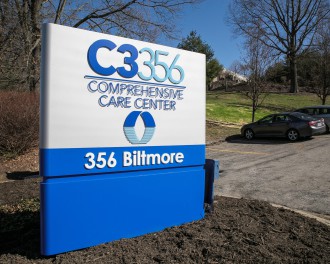
More than two years in the making, partner agencies celebrated the C3356 Comprehensive Care Center’s official opening with a ribbon-cutting ceremony on the evening of April 21. Attendees gathered to tour the building and to learn about C3’s offerings and the value the new facility will bring to those in need of support.
All in one
C3356 offers a one-stop shop model for those struggling with mental or behavioral health issues, substance abuse disorders or developmental difficulties, says Sandy Feutz, Vice President of RHA Health Services.
“People who need treatment, whether it’s routine care or crisis care, can come to this facility and get whatever they need at the time,” she notes. “We want to really change the culture, so if someone has a psychiatric crisis, they know to come here to C3 instead of the Emergency Room [at Mission].”
C3356 provides outpatient services, mental health and addiction counseling, a 24-hour behavioral health urgent care center and a peer living room for those seeking respite and a friendly face.
“This is a space that’s run by people in long term, sustained recovery, for people seeking recovery,” says Charlyne Boyette, one of C3’s specially-trained peer support specialists working in the peer living room. “When a person comes in, we welcome them as another human being on a journey. It doesn’t matter how long they’re here — we’re going to try to provide them with wellness tools and skills that they can use to manage their challenges.”
Real connections
For Marty Wood, who works part time in the facility’s observation room, the chance to work in such an innovative system of care was too much to pass up.
“I feel like this is so needed in the community,” says Wood, who has been in long-term recovery for mental health and substance use issues. “I’d been watching RHA’s website for an opening; I may have been the first application they got!”
The observation room is specially designed to provide a low-stimulation, quiet space where agitated clients can de-escalate and be evaluated to determine the next step in their recovery process.
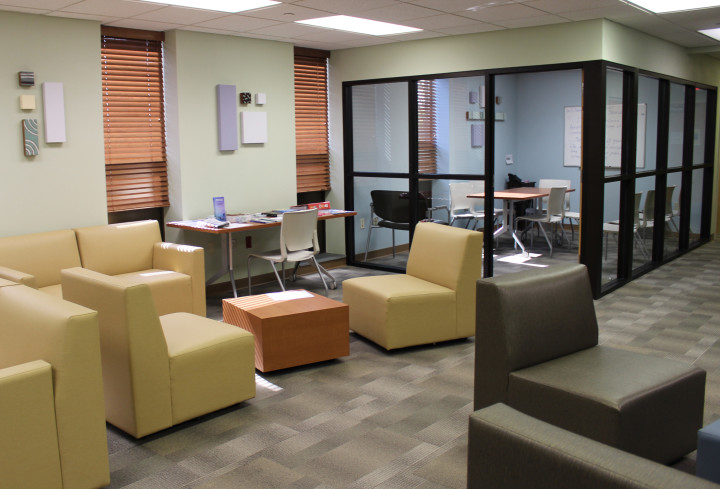
“Many of them have been in and out of systems for so long that they’re losing faith,” says Wood. “To be there with them physically and emotionally and see them starting to let their guard down a little bit — it’s a real privilege to get to be that intimate with another person.”
In addition, C3356 has a free community pharmacy onsite for patients who can’t afford their prescriptions, and will soon add a retail pharmacy for those with insurance, says David Taylor, the facility’s pharmacy manager. “Sales from the retail pharmacy will go back to supporting the free community pharmacy for those without insurance.”
And in the coming year, Feutz says the Neil Dobbins Center — a 16-bed crisis stabilization and detox center currently located at 277 Biltmore Ave. — will be moving into the C3 building, while a new children’s crisis facility will open across the street in the next year.
“We literally will have everything from routine care to inpatient treatment in the same site,” Feutz says. “Someone can get discharged from Neil Dobbins Center, walk upstairs and start their outpatient treatment.”
Common cause
With the North Carolina General Assembly and Department of Health and Human Services working towards integrating a holistic mental healthcare model across the state (see “No wrong doors,” Aug. 26, 2015, Xpress) C3356’s opening was touted as a great first step in that direction by speakers at the ribbon-cutting ceremony.
“When you understand this whole story [behind C3356], you have a real appreciation for the tremendous number of things that have to come together,” said Brian Ingraham, CEO of Smoky Mountain LME/MCO. “To be part of a group able to offer this for a community is personally and professionally extremely rewarding.”
North Carolina’s Secretary of Health and Human Services, Rick Brajer, said that WNC’s efforts to develop a comprehensive care center serves as an example to the rest of the state. “It really speaks to spirit of partnership that exists in this city, county and this side of North Carolina,” he noted. “It’s wonderful to see you guys so far ahead of what our plan is all about.”
“What defines a community is how we treat people who can’t take care of themselves,” Buncombe County Commission Chairman David Gantt said, praising local law enforcement, health agencies and public officials for bringing this initiative together. “When everybody agrees you need to do something, can you give up your kingdom for awhile and come together? This community has done this time and time again. C3356 is going to change lives, folks.”
State Senators Terry Van Duyn and Tommy Tucker, who both serve on the General Assembly’s Health and Human Services Committee, were also on hand to offer remarks on the importance of the facility.
“Each month in Buncombe County alone, more than 1,000 individuals desperately seek help for behavioral health issues,” Van Duyn noted. “These are people just like you and me, except that they are in crisis.” She added that the facility’s opening “marks a new beginning for Buncombe and surrounding counties. C3356 will set a new standard for our state, both in the service provided and the record time it took to go from concept to reality.”
Tucker noted that the General Assembly is working towards providing approximately $27 million in mental healthcare expansion. “Mental health has come a long way in North Carolina,” he stated. “You folks are the difference between someone walking into a church and killing nine people — It’s that real. This facility, your innovation — I hope goes straight across this state like a heat-seeking missile.”
For her part, Cerniglia is thankful to the Asheville community for assisting her in her time of need, when no one else would. “I can tell you there’s nothing like this in Southern California,” she asserts. “Asheville is ahead of everywhere else I’ve been when it comes to addressing comprehensive behavioral health services — You guys are it.”
For more information regarding the C3356 Comprehensive Care Center, an overview of services offered, or to seek help for behavioral and mental health issues or substance use disorders, stop by the facility at 356 Biltmore Ave. in Asheville, visit c3356.org or call (828) 254-2700.



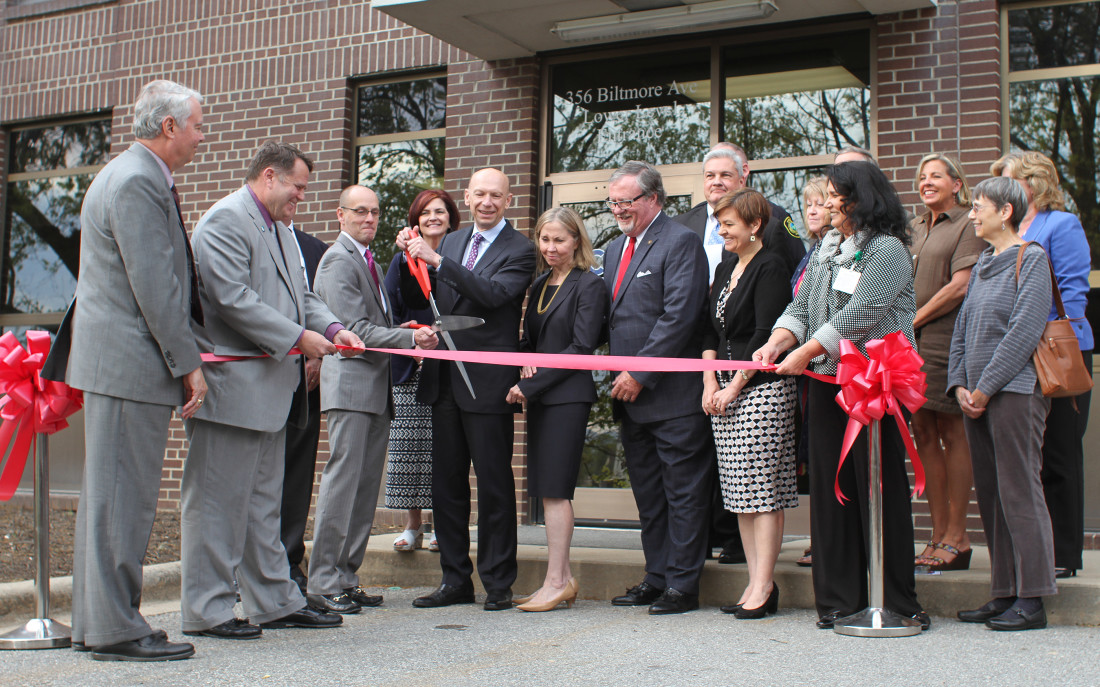
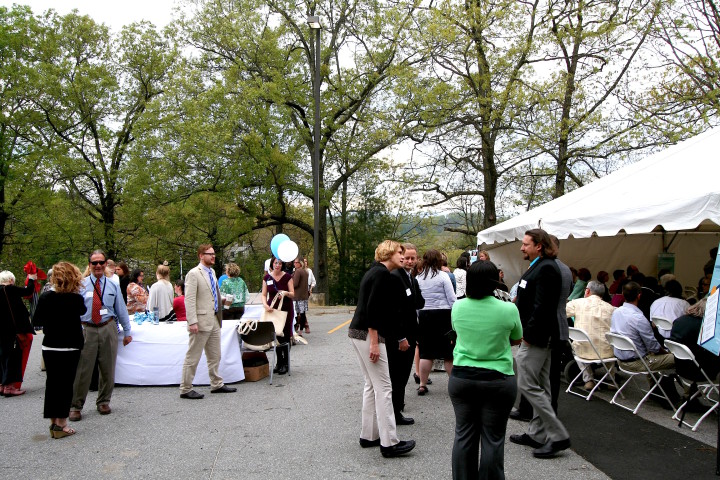
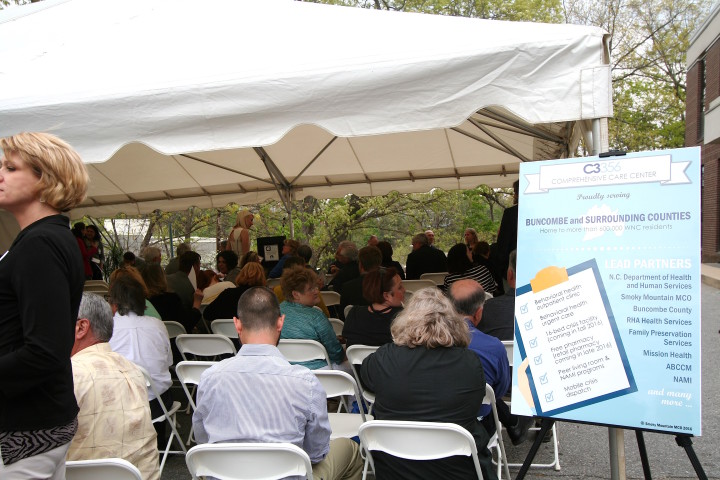
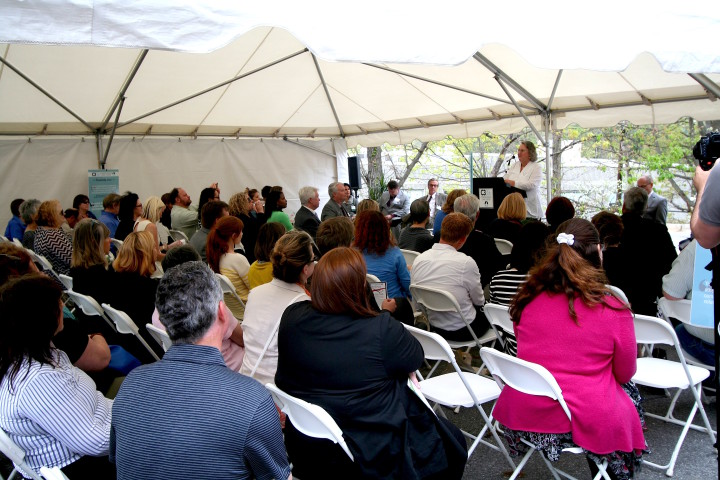
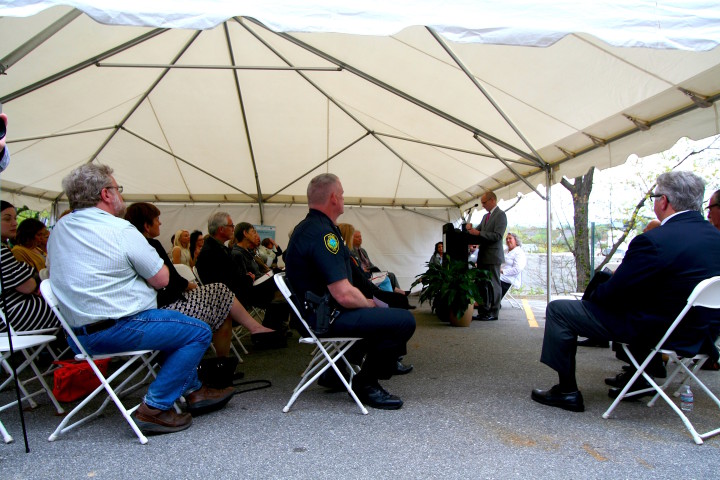
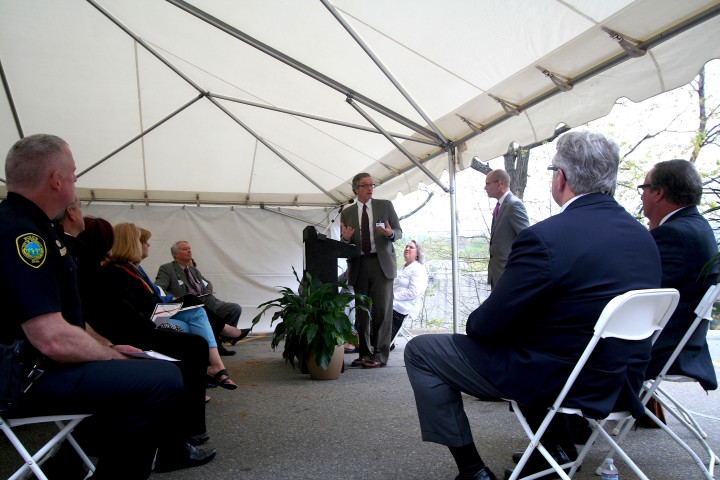
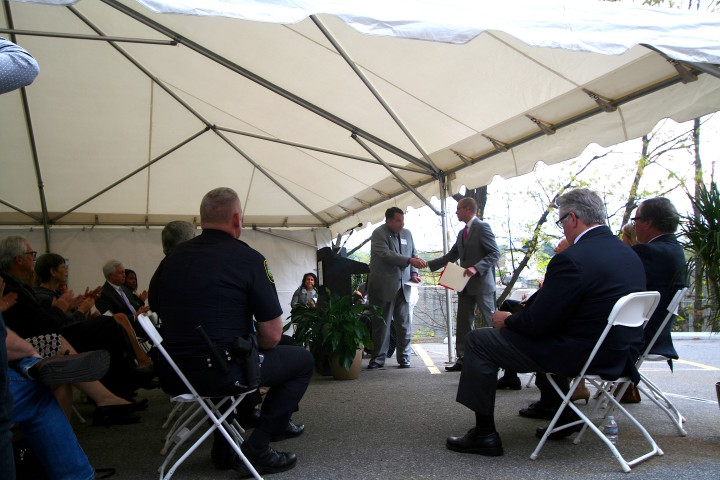
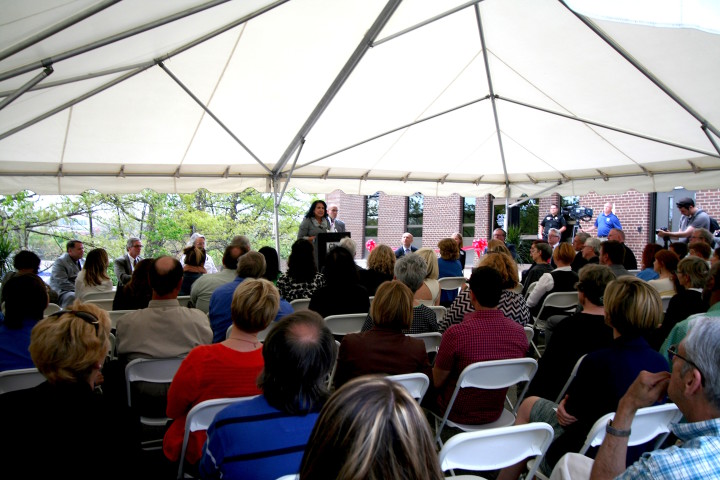
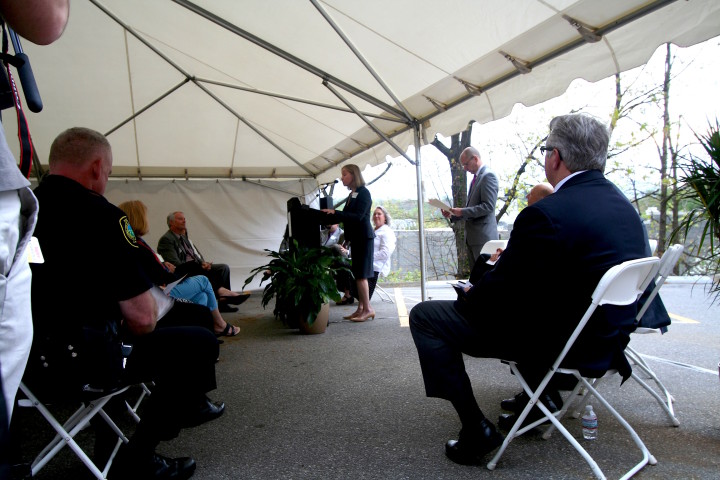
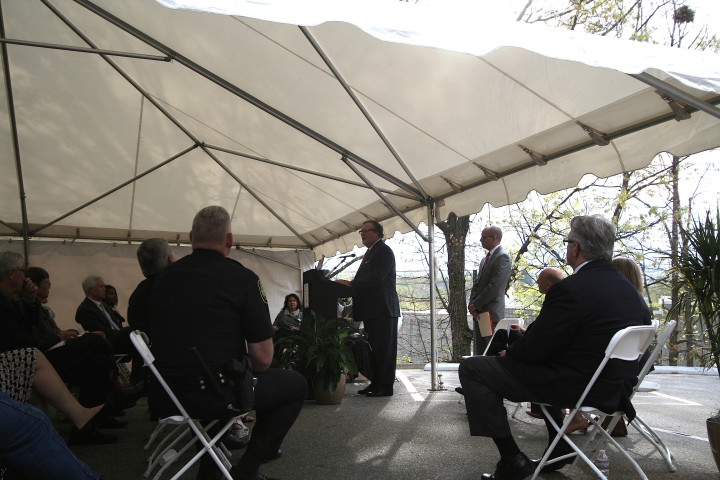
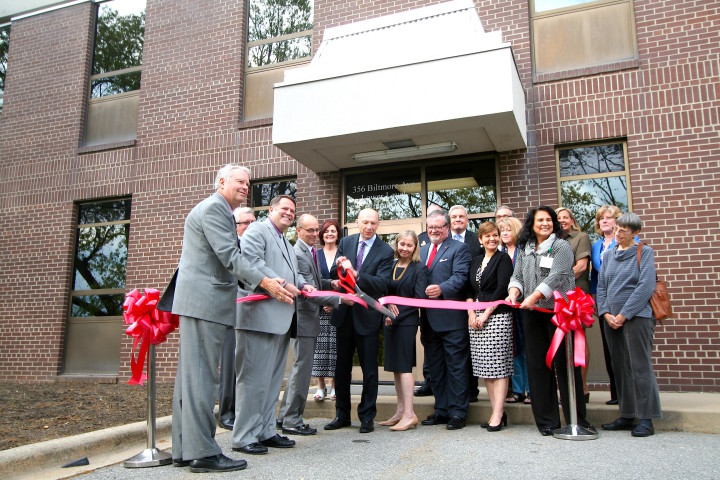
As soon as Lisa hears about the bathroom bill, she’ll head straight back to California.
Yeah, because bathrooms are what is important to a homeless, disabled senior citizen woman seeking substance abuse/mental health assistance!! Focus on the topic; this is not the place
This is a wonderful addition to services.
However, Mr. Tucker, I hope you understand that struggling with mental illness, or crisis, results in violence if treatment is lacking. NAMI works hard to de-stigmatize diagnostic categories. I hope folks understand that those struggling are more likely to be victimized than to victimize others.
Thank you to all who worked on and supported this.
Rather, struggling with crisis or a diagnosis does NOT mean it will result in violence.